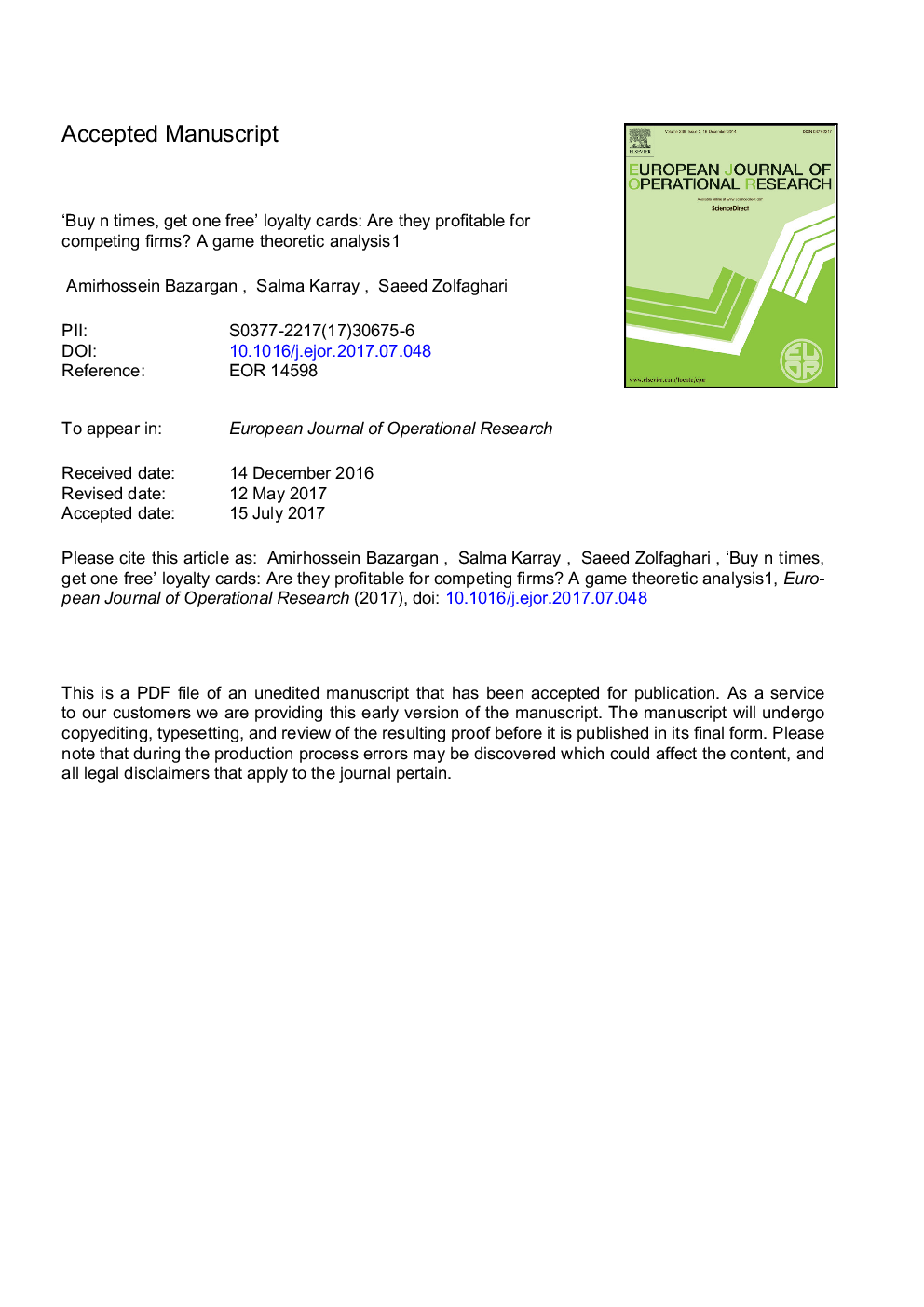| کد مقاله | کد نشریه | سال انتشار | مقاله انگلیسی | نسخه تمام متن |
|---|---|---|---|---|
| 6895308 | 1445941 | 2018 | 34 صفحه PDF | دانلود رایگان |
عنوان انگلیسی مقاله ISI
'Buy n times, get one free' loyalty cards: Are they profitable for competing firms? A game theoretic analysis
ترجمه فارسی عنوان
"خرید یک بار، کارت های وفاداری رایگان": آیا آنها برای شرکت های رقیب سودآور هستند؟ تجزیه و تحلیل نظری بازی
دانلود مقاله + سفارش ترجمه
دانلود مقاله ISI انگلیسی
رایگان برای ایرانیان
کلمات کلیدی
موضوعات مرتبط
مهندسی و علوم پایه
مهندسی کامپیوتر
علوم کامپیوتر (عمومی)
چکیده انگلیسی
This paper evaluates whether firms offering loyalty programs (LPs) should choose a restricted redemption policy by imposing a specific number of purchases before customers can redeem their points. Such restriction is commonly offered in form of 'buy n times, get one free' loyalty cards. We develop a multinomial logit model where consumer's utility depends on the value of the product and of the rewards. Using an iterative algorithm, we numerically solve a Nash game for two firms offering loyalty programs. Optimal strategies and profits are obtained for three different scenarios (games): (1) both firms do not restrict redemption; (2) both firms restrict redemption; and (3) only one firm restricts redemption while the other firm does not. Our main findings indicate that each firm's optimal strategies are significantly affected by whether the competitor decides to restrict or not to restrict redemption. In particular, a firm that restricts reward redemption should offer a higher price if its competitor also restricts redemption. Further, the dominant strategy of the game depends on customers' valuations of time and rewards. For example, when customers highly value time but do not highly value rewards, the dominant strategy for both firms is not to restrict redemption. Alternatively, firms can face a Prisoner dilemma situation leading to unrestricted redemption policy for intermediate levels of customer valuation of both time and rewards.
ناشر
Database: Elsevier - ScienceDirect (ساینس دایرکت)
Journal: European Journal of Operational Research - Volume 265, Issue 2, 1 March 2018, Pages 621-630
Journal: European Journal of Operational Research - Volume 265, Issue 2, 1 March 2018, Pages 621-630
نویسندگان
Amirhossein Bazargan, Salma Karray, Saeed Zolfaghari,
